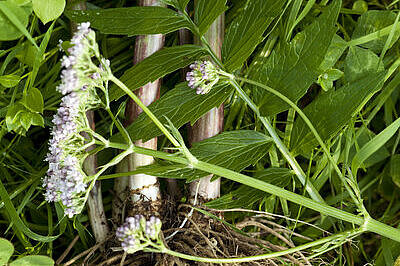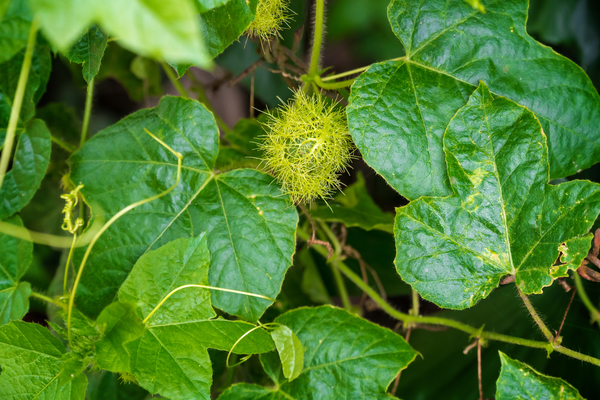St. John's wort root

What is St. John's wort root?
St. John's wort root is the root of the St. John's wort plant (Hypericum perforatum), which is mainly found in Europe and Asia. The plant has yellow flowers that bloom in summer and exude a pleasant fragrance. The root contains various active ingredients, such as hypericin, hyperforin and flavonoids, which can have a positive effect on the nervous system and the immune system.
What are the benefits of St. John's wort root for dogs?
St. John's wort root can have various positive effects on dogs, such as
- Pain relief: the anti-inflammatory properties of St. John's wort root can provide relief for dogs with joint or muscle pain.
- Strengthening the immune system: St. John's wort root supports the immune system and can therefore contribute to your dog's general health.
- Calming and relaxation: St. John's wort root has a calming effect on the dog's nervous system and can therefore help with anxiety, stress or nervous behavior.
How do I dose St. John's wort root for my dog?
The dosage of St. John's wort root depends on the size and weight of your dog. In general, you can assume 2 to 4 mg per kilogram of body weight for dry extracts. With powdered leaves or flowers, you can administer around 1 to 2 teaspoons per 10 kilograms of body weight. However, you should always adjust the dosage to your dog's individual needs and, if in doubt, always consult a vet.
How do I use St. John's wort root for my dog?
There are various ways in which you can use St. John's wort root for your dog. Here are some creative ideas:
- You can mix St. John's wort root as a powder or extract directly into your dog's food or give it as a treat.
- You can prepare St. John's wort root as a tea and offer it to your dog lukewarm to drink or pour it over his food.
- You can buy St. John's wort root as an oil or make it yourself and gently massage your dog's ears or stomach with it.
- You can use St. John's wort root as part of a herbal mixture that is specifically tailored to your dog's needs. For example, Solli's offers a herbal blend for calming and relaxation that contains valerian, lemon balm and lavender in addition to St. John's wort.
What should I bear in mind when using St. John's wort root for my dog?
St. John's wort root may be a natural medicinal plant, but that doesn't mean it's without risks. There are a few things you should be aware of when using St. John's wort root for your dog:
- St. John's wort root can increase your dog's sensitivity to light, leading to sunburn or skin irritation. You should therefore protect your dog from direct sunlight when giving him St. John's wort root.
- St. John's wort root can influence or weaken the effect of other medications. You should therefore inform your vet if your dog is given St. John's wort root and is taking other medication at the same time.
- St. John's wort root can lead to side effects such as diarrhea, vomiting, loss of appetite or restlessness if overdosed or used long-term. You should therefore always adjust the dosage to your dog's size and weight.
St. John's wort root is a medicinal plant that can have many benefits for dogs, such as pain relief, strengthening the immune system and calming. There are various products on the market that contain St. John's wort root, as well as different ways you can use it for your dog. However, you should always inform yourself about the correct dosage, the correct application and the possible side effects.
Properties 14
Are you looking for other ingredients with a specific property?
Just click on them to find more.
If you notice any signs of hypersensitivity or poisoning in your dog, you should see your vet immediately. We are not a substitute for a vet, but we try to be as accurate as possible. Every dog reacts differently and we recommend you get a second opinion or consult your vet if in doubt.
Stay healthy and take good care of your four-legged friend!😊
Similar to St. John's wort root
Valerian root is the root of the plant Valeriana officinalis, which is native to Europe and Asia. The root contains various ingredients that have an effect on the nervous system, such as valerenic...
Chamomile flowers are the dried flower heads of the chamomile plant, which belongs to the Asteraceae family. Chamomile is an annual plant that is native to Europe, Asia and North Africa. It has...
Lemon balm belongs to the labiate family and is related to mint, sage and thyme. It has small white or pink flowers that attract many bees. The leaves of the plant contain essential oils, tannins,...
What is passionflower herb? Passionflower herb is the dried above-ground part of the passionflower (Passiflora incarnata), a climbing plant with striking flowers. The passion flower originates from...



